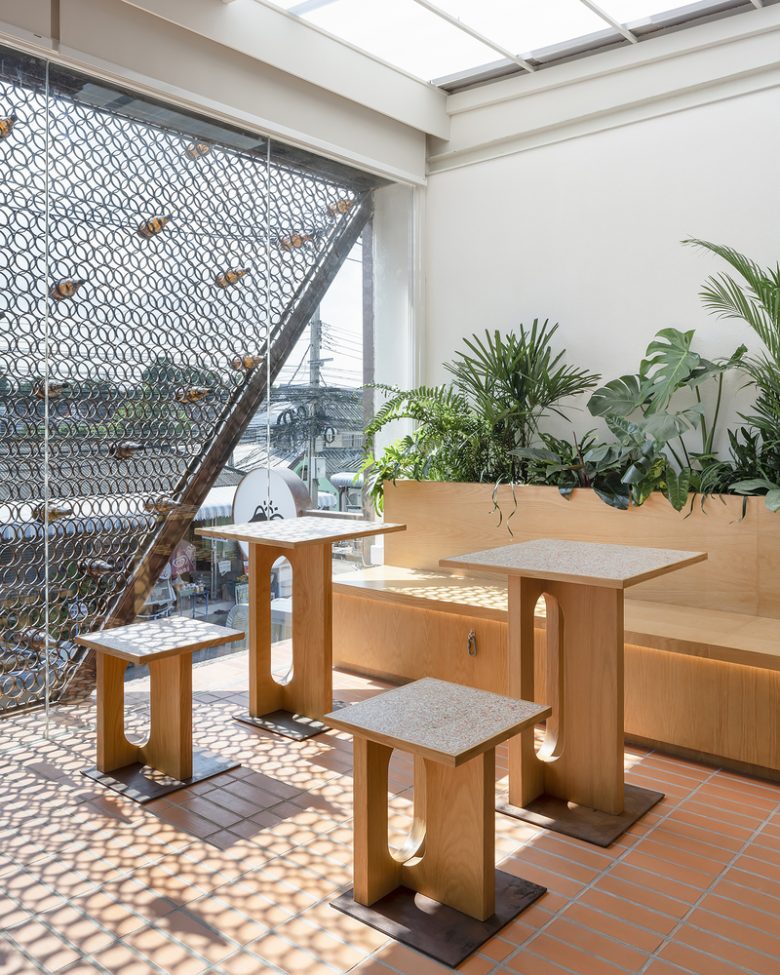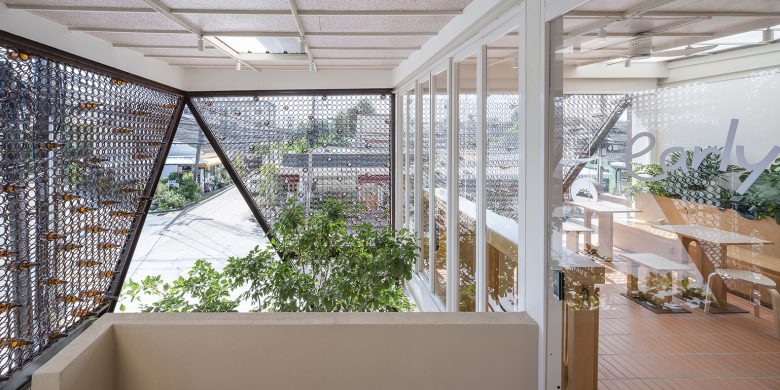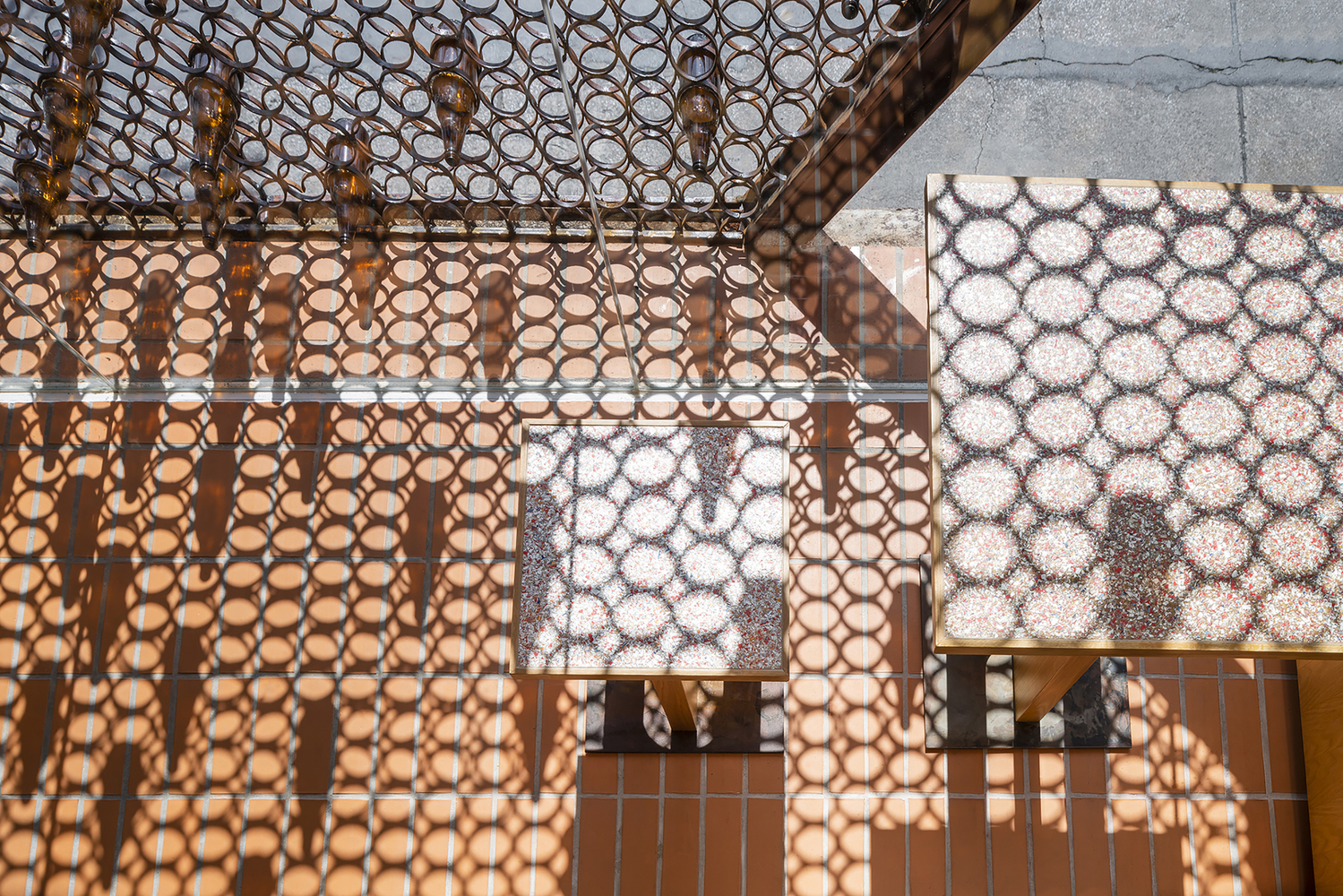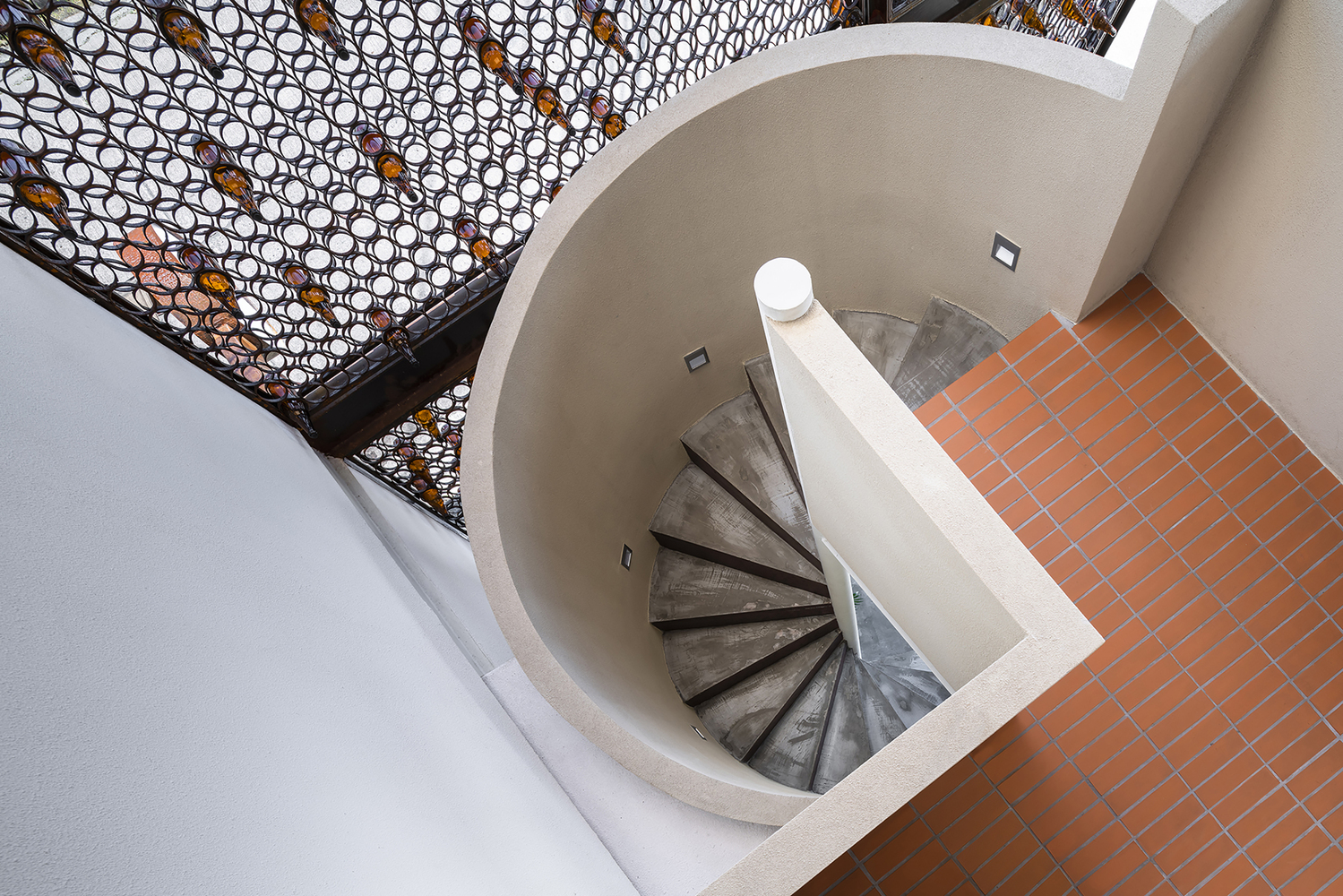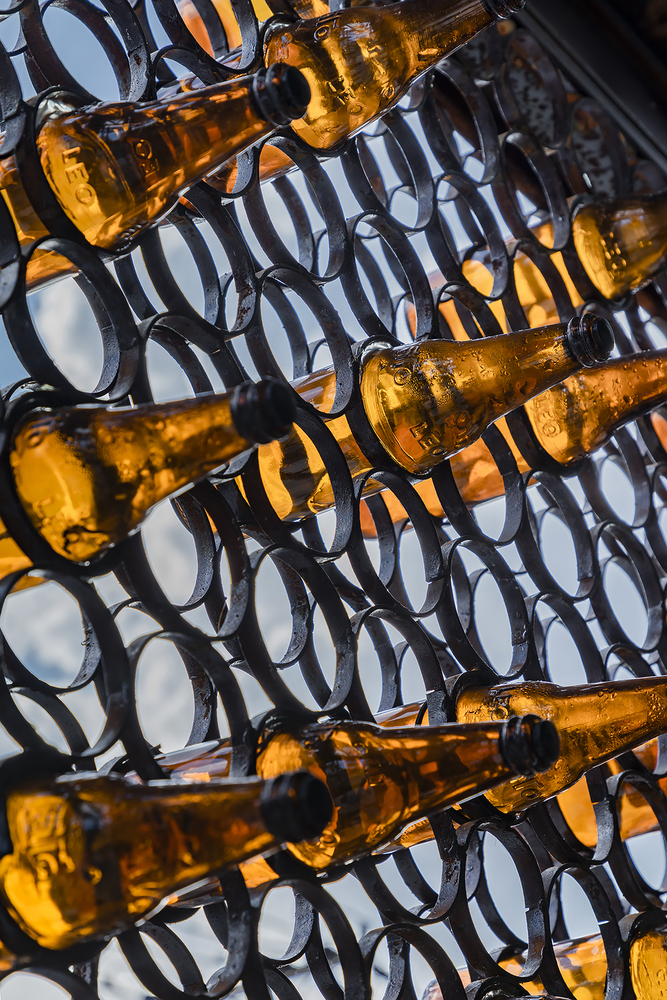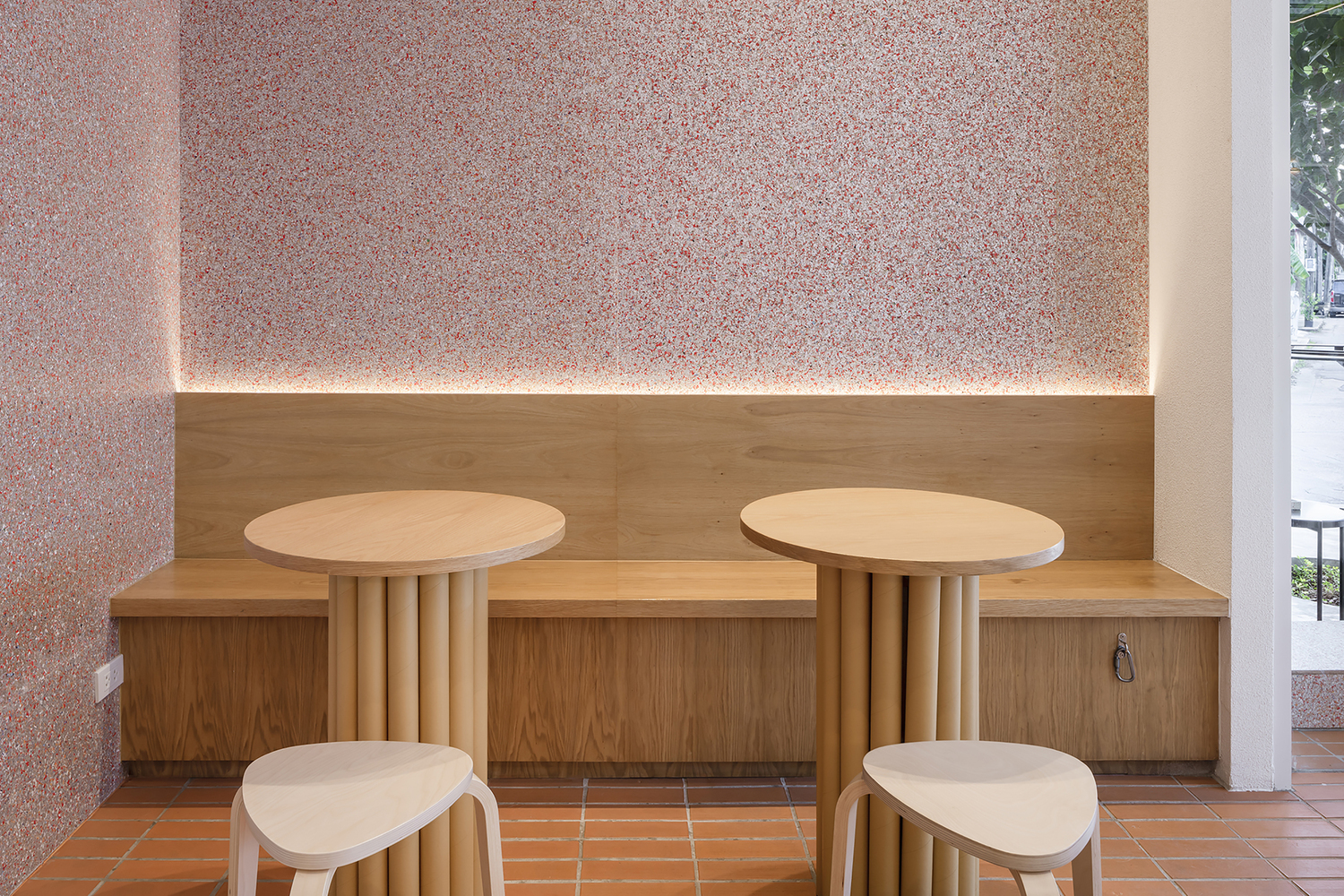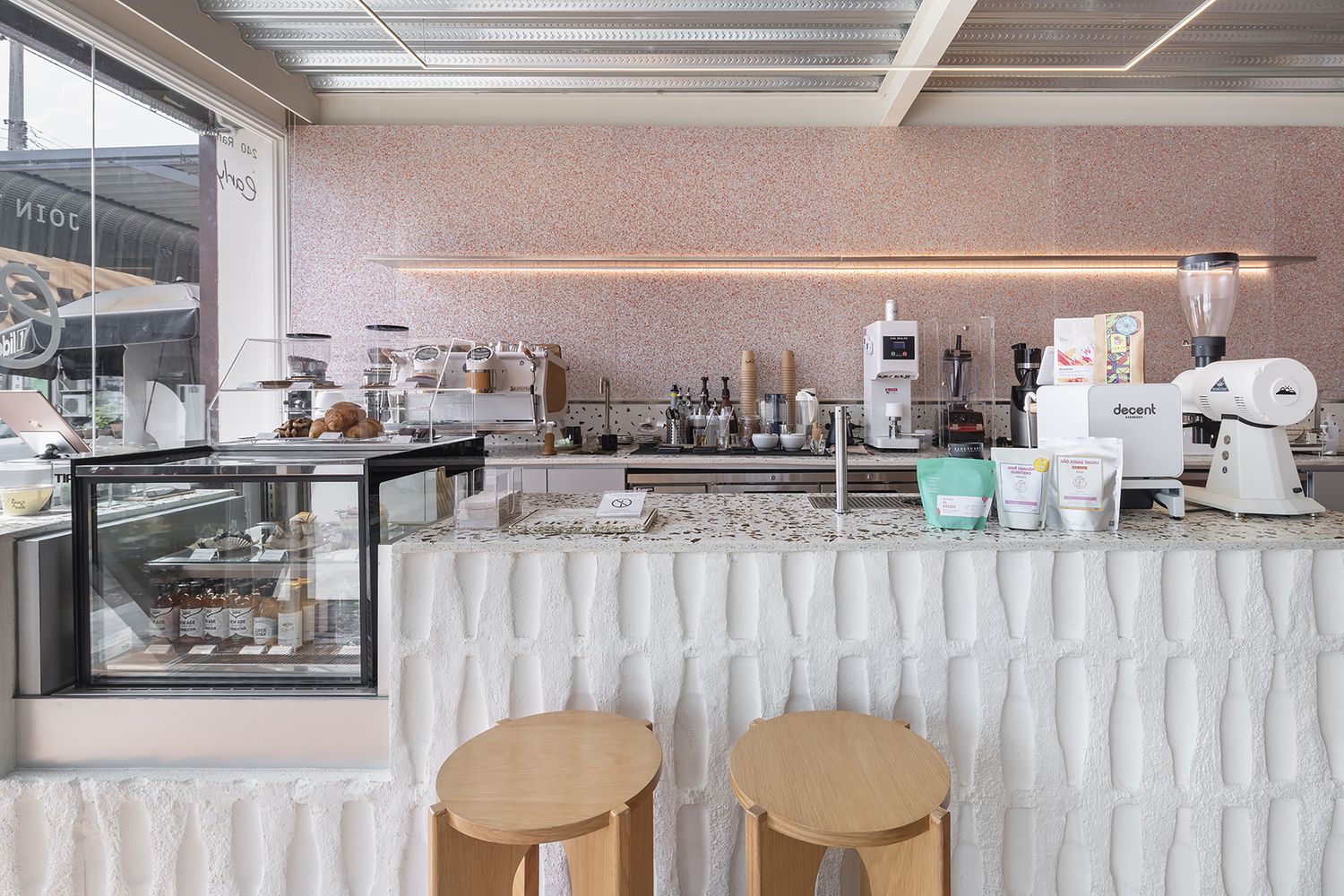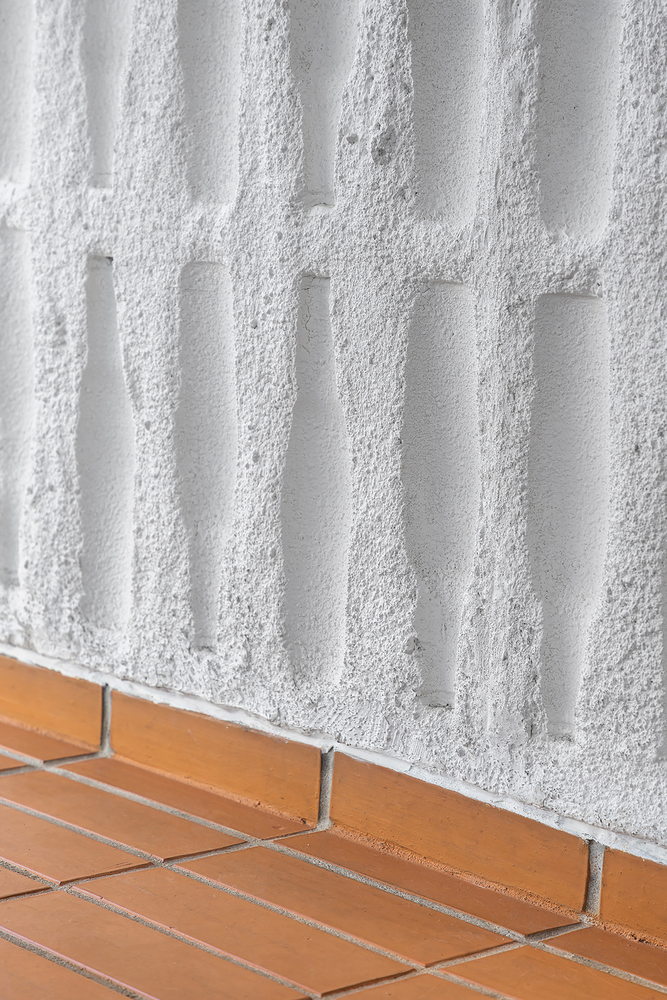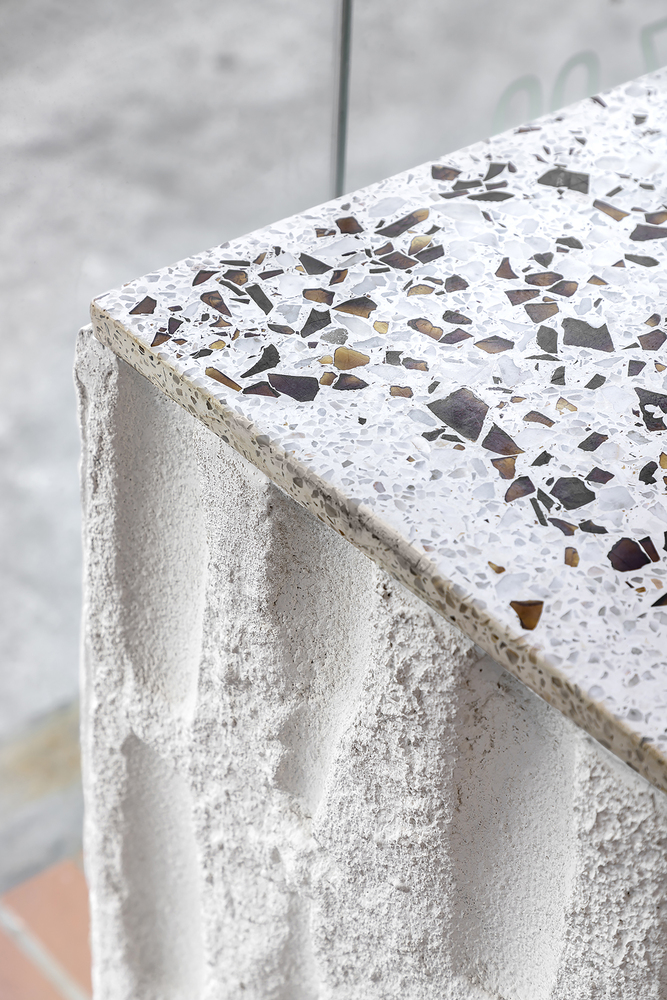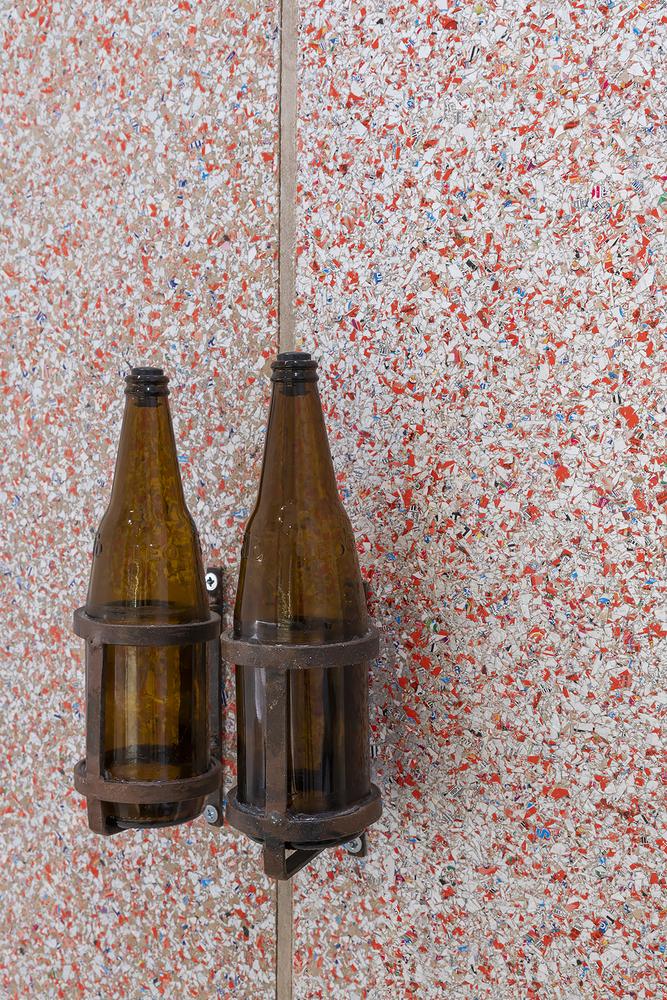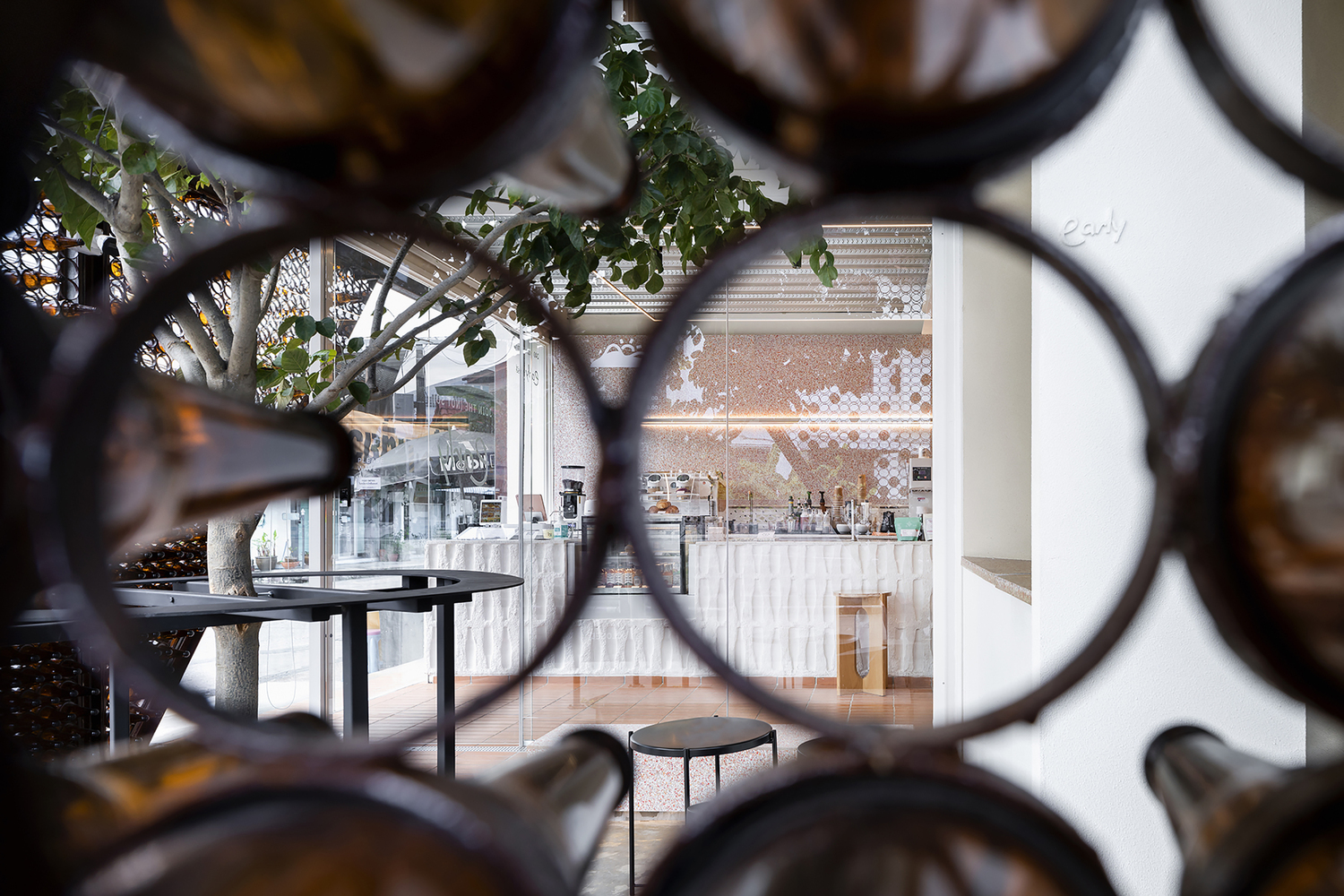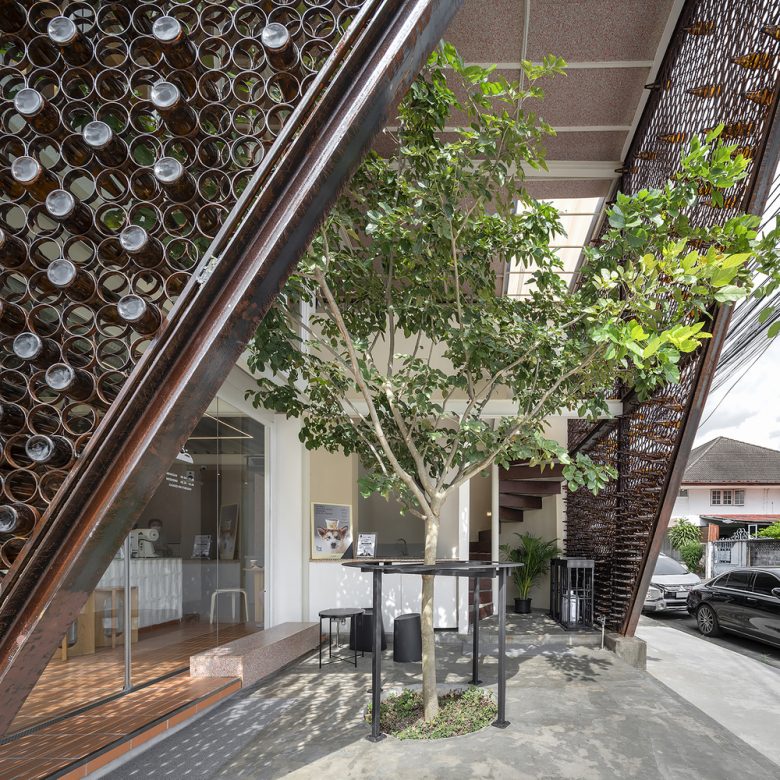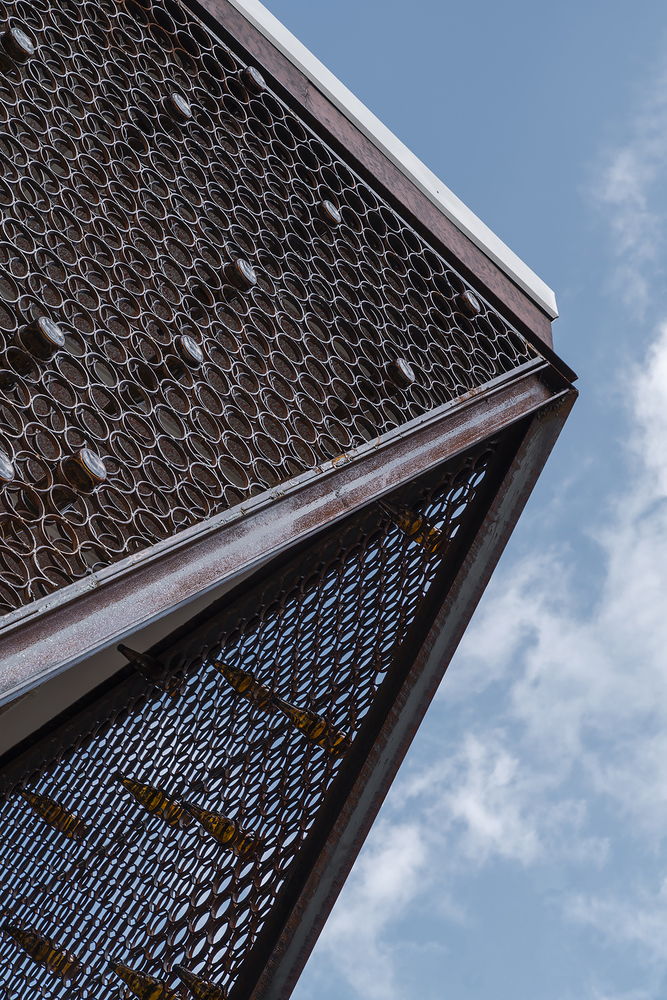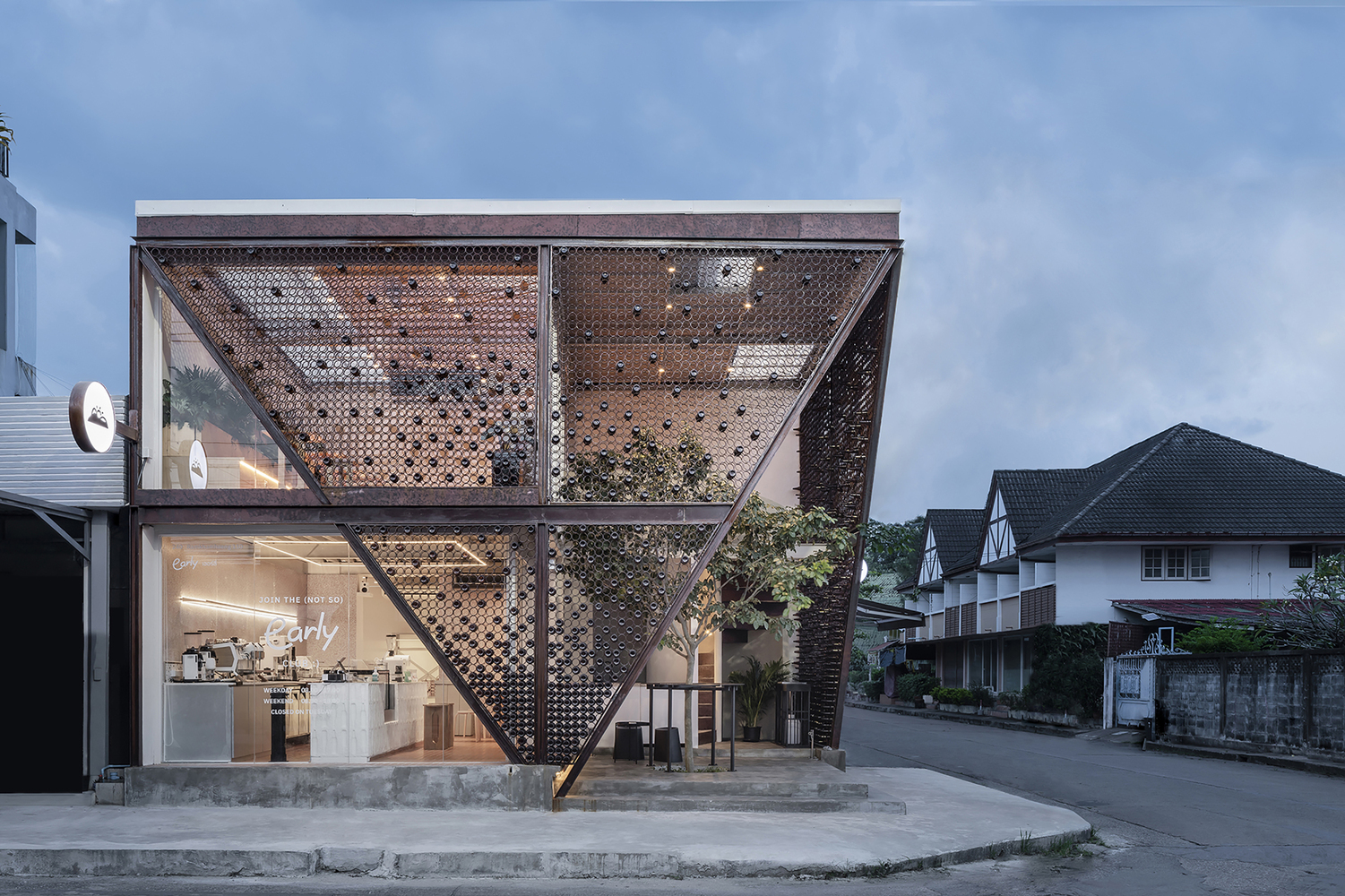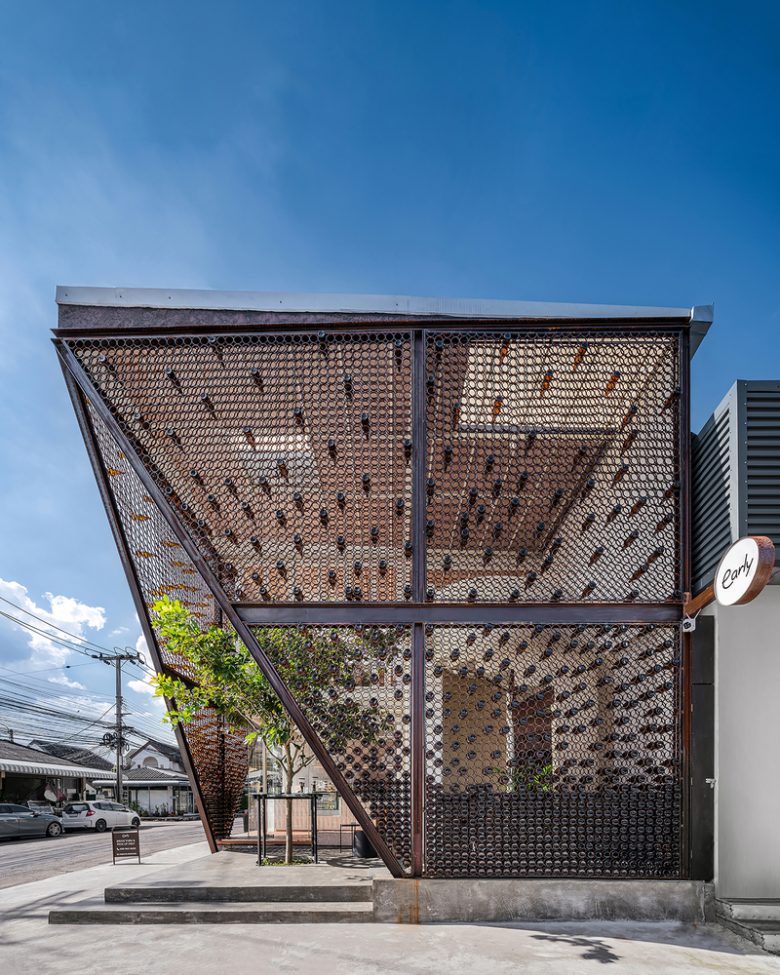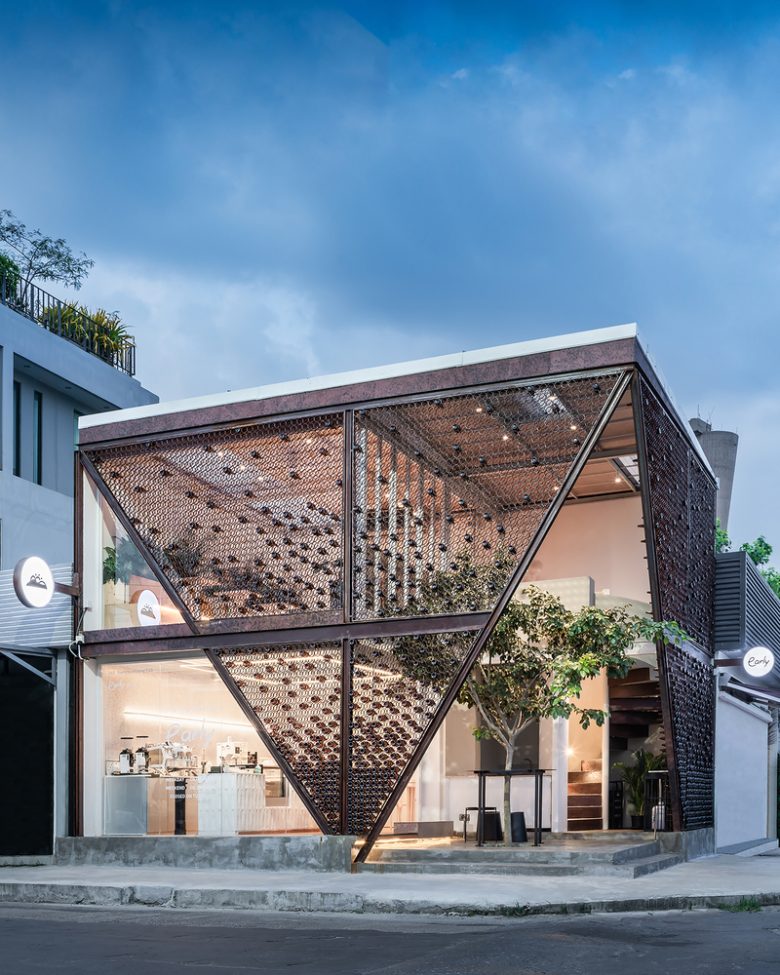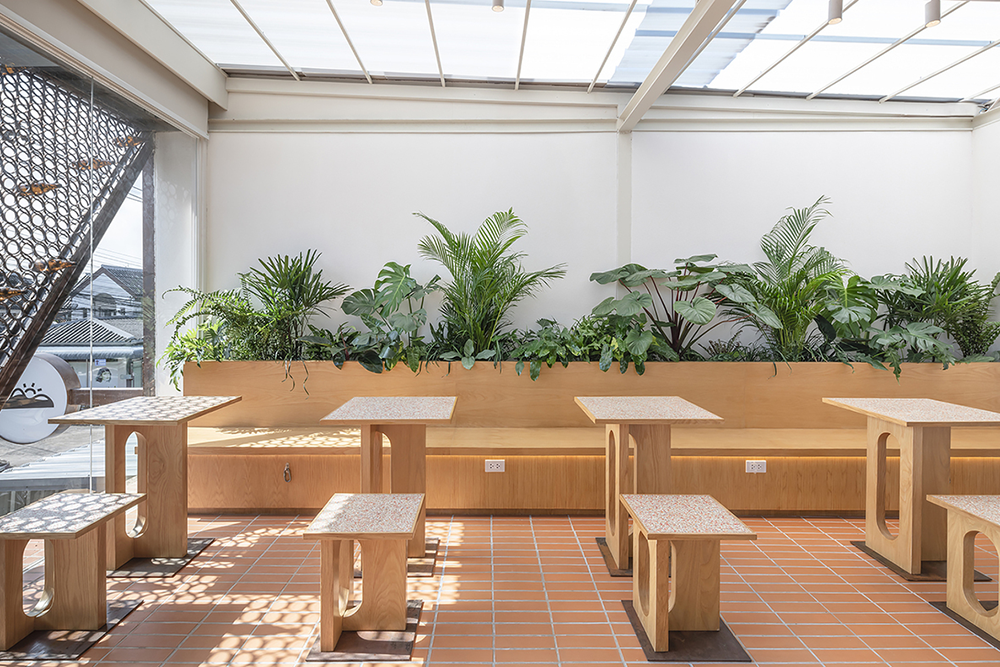
Early BKK started with a strong intention and passion of Kaytita Chaisuksiri, to create a community café with truly green and sustainable concepts in her neighborhood. She found a site location in her village which is a strong living community in Bangkok. In this community, mostly big families with all generations including pets, therefore Early BKK aimed to be a tangible space that can be accessible to all. Unlike most of the café and retail businesses which always think about making profits. Early BKK, on the other hand, thinks about how to introduce recycling and green concept and lifestyle to the visitors and neighbors. Seeing many problems arising with regard to waste management these days, upcycling materials that have been overlooked are taken to important parts of the design.
Since the statement of Early BKK is very clear, Spacecraft started to do the research about upcycling materials and trash around the neighborhood and found that the most familiar trash that can be recycled and reused are different types of containers, such as milk cartons and glass bottles. We decided to use these waste containers as the main materials throughout the design, from architectural facades to interior finishing and furniture.
We worked together with a factory to produce a ‘re-board’ which is a board made from 100 percent of small cut pieces of used milk cartons. Re-board was used in most of the interior space such as door, ceiling, chairs, and tables. To control the overall color scheme, we carefully selected the color of used milk cartons only in orange and warm colors scheme, to match with handmade brick tiles floor. Beer bottles are another main reused material we used in many different ways in this project. Obviously on the facade, around 600 used beer bottles were placed in the metal rings structure of the building. They created a stunning effect of lights and shadows during days in the interior space, as well as told a good story of Early BKK’s objective from the exterior appearance.
Some of the used beer bottles are broken down into pieces and used as the main component of the terrazzo counterworking top and toilet floor. Some walls are made by bumping bottles into the concrete wall, creating interesting wall patterns and textures. We called this “Bottles fossil” since the production and final look are similar to the fossil by leaving traces on the wall. Moreover, we added some small details by using trash such as a used galvanized iron oil tank as a basin counter and used glass bottles as door knobs.
Early BKK is a small 2-storey building on the corner of the road. The entrance at the corner is a small double-space courtyard with a big tree and pet parking area, offering a welcoming and friendly vibe. 1st floor is the main coffee bar including coffee machines and a slow bar, with few seats. Retail shelves for refill products, home coffee equipment, pet products, and some second-hand clothes are in the back of the coffee bar area. 2nd floor is all seating areas, designed with a large window on both sides for good ventilation. This room is designed for multipurpose uses, that can be transformed into a workshop room.
The management of the café is completely based on green and sustainable concepts. For example, “no straws”, “no plastic cup”, “bringing your mugs get discount”, and waste separation. Solar cell panels were installed on the roof as the main energy source. Early BKK aimed to create lesser waste and be responsible for whatever carbon footprint we created and encouraged everyone to join this effort. In the end, Early BKK is an inspiring showcase of how interesting upcycling and waste materials can finally be created. People might come here for a coffee, but will definitely go back with some changes in their mindset about the waste and recycle concept. Believing in small intentions can make the world a better place, Early BKK prospected to be a small part of creating some changes in society.
Interior Designers: space+craft
Architects & Interior Designers : Sathika Jienjaroonsri, Noppachai Akayapisud
Interior Designer: Paranee Raweenipa
Architect: Natthapat Lothaisong
Structure Engineer: Aphichart Wongdee
Photographs: Thanapol Jongsiripipat
Via
